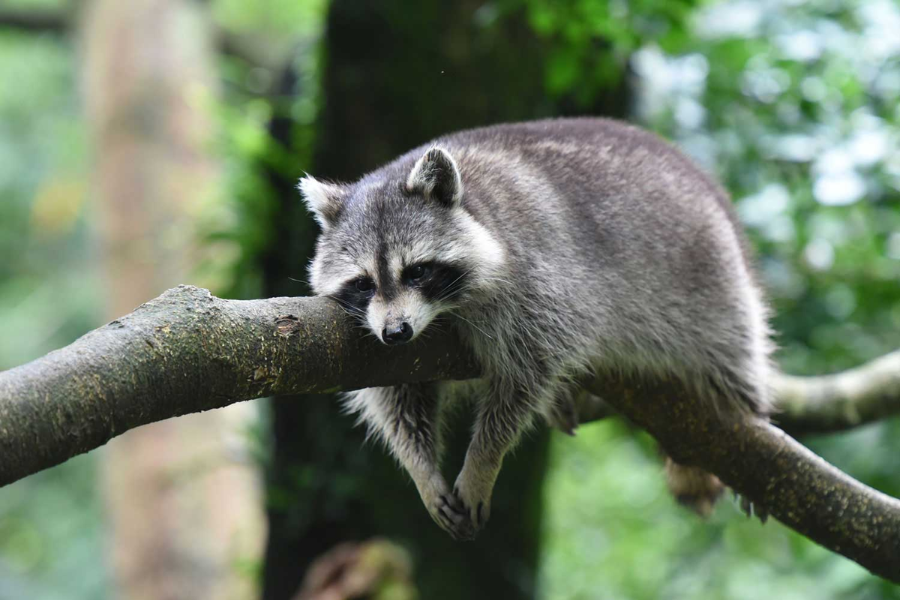Raccoons are curious creatures—clever, adaptable, and often misunderstood. Their intelligence and dexterity have earned them a place of fascination, particularly when we see them in zoos or wildlife sanctuaries. But one of the most common questions people ask is: how long do raccoons live?
This seemingly simple question opens the door to a much deeper understanding of raccoons, both in the wild and in captivity. In this guide, we’ll take a detailed look at how long raccoons live under various conditions, the differences between wild and captive raccoons, the risks they pose, and the proper steps to take if one shows up on your property.
How Long Do Raccoons Live in Captivity?
In controlled environments such as zoos, wildlife rehabilitation centers, and sanctuaries, raccoons can live exceptionally long lives. With proper medical care, a safe environment, and regular food, how long do raccoons live becomes a much more impressive answer: up to 20 years in some cases.
These raccoons receive regular veterinary attention, are vaccinated against dangerous diseases like rabies, and are treated for parasites such as raccoon roundworm. They are fed balanced diets and protected from predators, disease, and the harsh conditions of the wild. It’s not uncommon for raccoons in captivity to go through many mating seasons, forming larger family units over time—something rarely seen in the wild.
Wild vs. Captive Raccoons: Behavior and Longevity
While captive raccoons may live decades, wild raccoons face a far more challenging existence. So, how long do raccoons live in the wild? Typically, their lifespan is much shorter, averaging just 2 to 3 years. A lucky few may reach 5 to 7 years, but these cases are rare.
This short life expectancy is due to numerous factors: vehicle collisions, predators, diseases, harsh weather, and food scarcity. Wild raccoons are solitary by nature and tend to be aggressive, especially during mating season or when threatened. Unlike their captive cousins, they do not form stable family groups and often show little to no social bonding.
The Dangers of Wild Raccoons
If you’ve seen raccoons in a zoo, they may seem friendly and harmless. But this is a carefully curated image shaped by medical treatment and controlled exposure to humans. In reality, wild raccoons can pose serious risks.
A major concern is raccoon roundworm (Baylisascaris procyonis), a parasite that can infect humans. The eggs of this parasite are found in raccoon feces, and when accidentally ingested, they can cause severe damage to the brain, eyes, and other organs. In severe cases, it can even be fatal.
Another significant danger is rabies. Raccoons are considered a “vector species” for the rabies virus, meaning they are among the most likely carriers. When people ask, how long do raccoons live, they may not realize that a raccoon acting strangely—circling, making odd noises, or lying on its back—is likely infected and should be avoided at all costs.
What To Do If You See a Wild Raccoon
Wild raccoons don’t just show up without reason. If a raccoon has wandered into your backyard or attic, it’s likely attracted by something—usually food or shelter. Bird feeders, open trash bins, pet food left outside, and even birdbaths can serve as an invitation.
So how should you handle such a situation?
- Do not approach the raccoon, even if it seems docile.
- Do not attempt to feed or touch it.
- Observe its behavior from a safe distance.
- If the raccoon appears sick, disoriented, or unusually friendly, contact your local humane society or animal control.
You might wonder again: how long do raccoons live when they’re sick or injured? Unfortunately, not long. Ill raccoons in the wild typically succumb quickly without intervention, and their suffering can become a hazard for humans and pets alike.
Wildlife Control and Legal Considerations
Many people assume they can call any pest control company to deal with a raccoon problem. However, this is not always true—especially in cases involving rabies. When dealing with a suspected rabid animal, wildlife professionals must defer to government agencies such as the Ministry of the Environment or a state wildlife authority. These agencies have specialized teams trained to handle disease-carrying animals in a safe and humane way.
As you consider how long do raccoons live, it’s important to remember that while captive ones are protected and cared for, wild raccoons are subject to laws designed to preserve native species while ensuring public safety. Some regions prohibit the relocation or extermination of raccoons without special permits.
Why You Should Never Keep a Wild Raccoon as a Pet
Raccoons may look adorable, especially as babies. But appearances can be deceiving. Keeping a wild raccoon as a pet is not only illegal in many places—it’s also extremely dangerous.
Even when raised from a young age, raccoons retain their wild instincts. They are unpredictable, prone to biting, and capable of causing extensive property damage. Plus, without proper veterinary care, they can carry all the same diseases as wild raccoons. Ask yourself again: how long do raccoons live when confined improperly or cared for by untrained hands? The answer is, unfortunately, not long.
How to Keep Raccoons Off Your Property
Preventing raccoons from visiting your home is far better than dealing with them afterward. Here are some practical tips:
- Secure garbage bins with tight-fitting lids.
- Avoid leaving pet food or birdseed outside overnight.
- Install motion-sensor lights around your property.
- Seal off entry points into attics, basements, and crawl spaces.
- Remove standing water or birdbaths that can attract thirsty animals.
By taking these steps, you reduce the chances of an unwanted raccoon encounter—and help ensure that your property remains safe and disease-free.
Understanding Raccoon Life Cycles
Mating season for raccoons typically runs from January through June, and during this time, you might see increased activity around your home or neighborhood. Female raccoons give birth to litters of 2 to 5 kits, which remain with the mother for several months before venturing out on their own.
These family units may appear social and affectionate, especially in captivity. However, in the wild, relationships between raccoons are usually short-lived. Ask any wildlife expert, how long do raccoons live with their families in nature? The answer: not very long at all.
Final Thoughts:
Raccoons are remarkable animals with an impressive range of skills and behaviors. Whether climbing trees, opening jars, or figuring out how to get into your trash, they are clever survivors. Yet, it’s essential to remember that they are not domestic pets.
Understanding how long do raccoons live offers insight into both their vulnerability and their resilience. In captivity, with love and care, they can thrive for decades. In the wild, life is short, rough, and filled with danger.Respect these animals from a distance. Learn about their habits. Take precautions to keep them off your property. And if you find one in distress, call a professional—never try to handle it yourself.
FAQs:
Q1: How long do raccoons live in captivity?
A: Raccoons in captivity can live up to 20 years, thanks to consistent food, veterinary care, and protection from predators.
Q2: How long do raccoons live in the wild?
A: Wild raccoons generally live 2 to 3 years, although some may reach 5 to 7 years in ideal conditions.
Q3: Are raccoons dangerous to humans?
A: Yes. Wild raccoons can carry rabies and raccoon roundworm, both of which are serious threats to human health.
Q4: What should I do if I see a raccoon acting strangely?
A: Do not approach. Contact animal control or your local humane society. A raccoon showing odd behavior may be rabid.
Q5: Is it legal to keep a raccoon as a pet?
A: In most areas, no. Keeping raccoons as pets is often illegal and unsafe due to their aggressive tendencies and disease risk.
Q6: What attracts raccoons to homes?
A: Open garbage, bird feeders, pet food, and water sources like birdbaths can draw raccoons to residential areas.
Q7: Can raccoons form families in the wild?
A: Briefly. Mothers care for their young for a few months, but adult raccoons are typically solitary.
Q8: How long do raccoons live when infected with rabies?
A: Once symptoms appear, raccoons usually die within a few days. Rabies is nearly always fatal without early intervention.
Stay in touch to get more updates & news on TechiSfuture!





